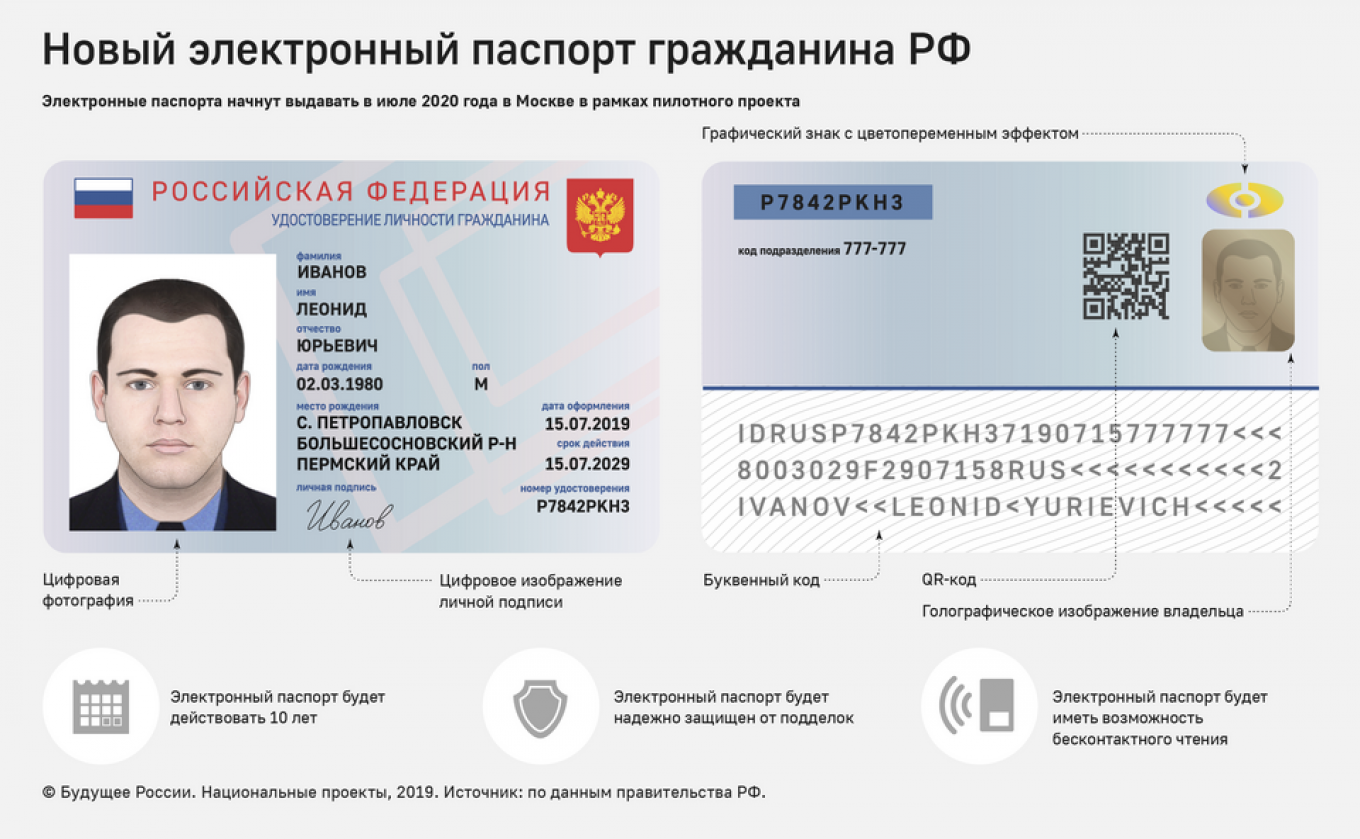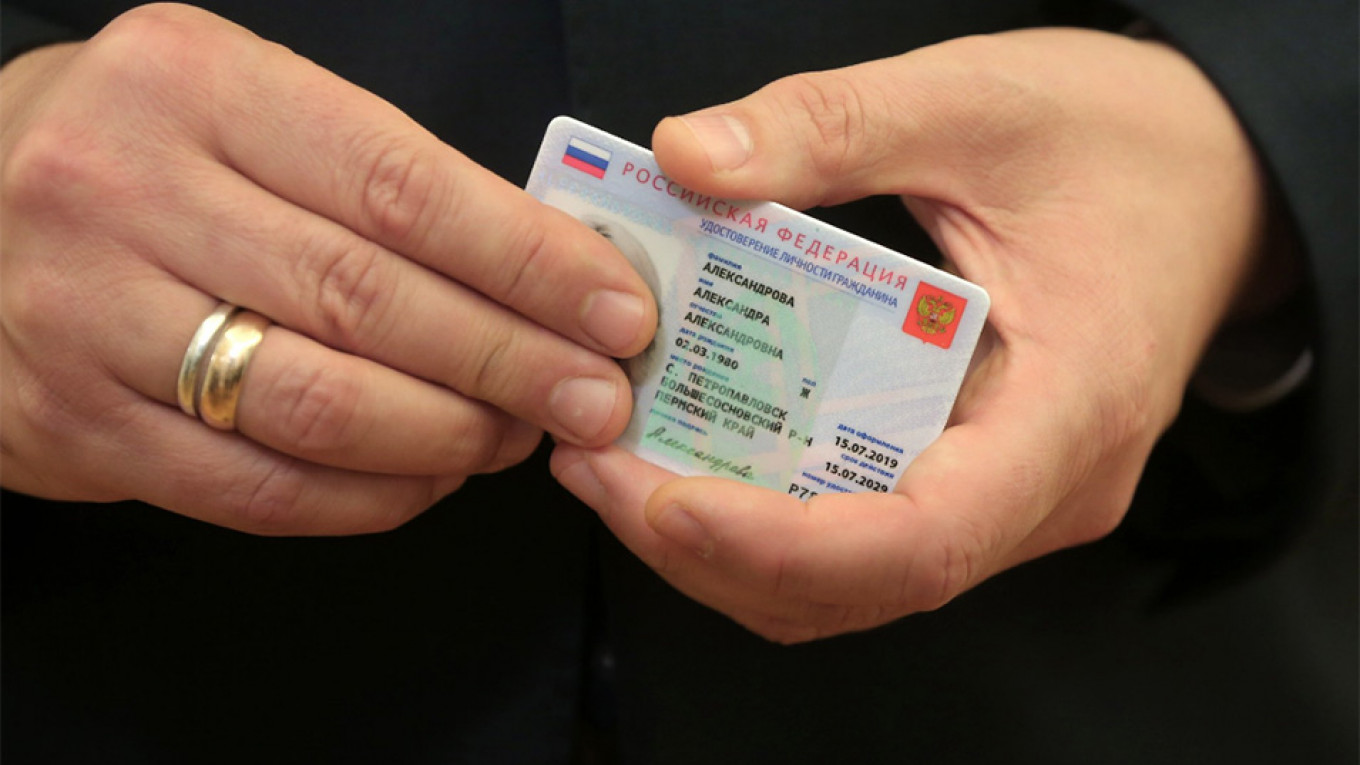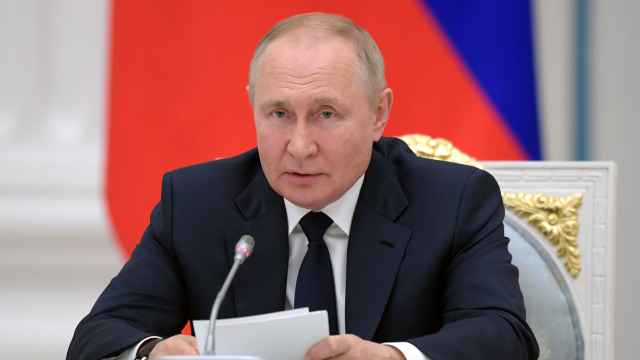Russia is planning to phase out paper passports within three years as part of its national digitization program, according to the official government website, drawing support as well as criticism over privacy concerns.
The government resumed discussions on issuing digital passports last fall, five years after it initially considered the idea. Cost estimates for the overhaul range from 114.4 billion rubles ($1.8 billion) to 144 billion rubles ($2.2 billion).
The first digital passports, which will take the form of plastic cards, will be issued next July in Moscow, Deputy Prime Minister Maxim Akimov said Wednesday.
“Those who don’t want to change their paper passports…can keep them to the grave,” Akimov told reporters.

The digital ID card will have a 10-year expiration date and contain an electronic chip bearing nearly all of the passport holder’s personal information.
The electronic passport might also come in the form of a mobile app, Prime Minister Dmitry Medvedev said during a cabinet session before Akimov spoke.
A digital passport lifts bureaucratic hurdles but also exposes citizens to hacking and personal data leaks, according to industry experts surveyed by the Novaya Gazeta newspaper.
Others told the Vedomosti business daily that the transition period toward an cloud-based system could pose technical and other difficulties for new passport holders.
The proposal has also attracted criticism from the Russian Orthodox Church, which said the collection and retention of personal data threatens privacy.
The government has been pursuing a $53-billion Digital Economy Program since 2017 to help roll out digital technologies nationwide by the last year of Vladimir Putin’s presidential term in 2024. Officials have predicted that, as part of the program, four in five Russians will have a digital profile by 2025.
A Message from The Moscow Times:
Dear readers,
We are facing unprecedented challenges. Russia's Prosecutor General's Office has designated The Moscow Times as an "undesirable" organization, criminalizing our work and putting our staff at risk of prosecution. This follows our earlier unjust labeling as a "foreign agent."
These actions are direct attempts to silence independent journalism in Russia. The authorities claim our work "discredits the decisions of the Russian leadership." We see things differently: we strive to provide accurate, unbiased reporting on Russia.
We, the journalists of The Moscow Times, refuse to be silenced. But to continue our work, we need your help.
Your support, no matter how small, makes a world of difference. If you can, please support us monthly starting from just $2. It's quick to set up, and every contribution makes a significant impact.
By supporting The Moscow Times, you're defending open, independent journalism in the face of repression. Thank you for standing with us.
Remind me later.






